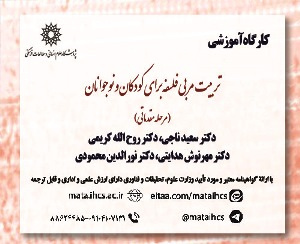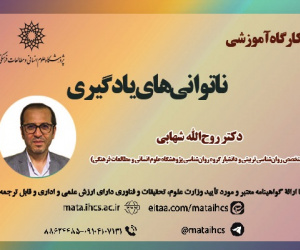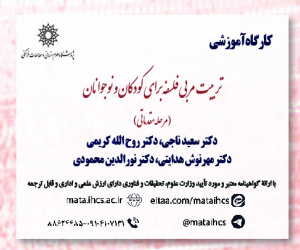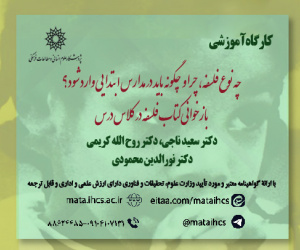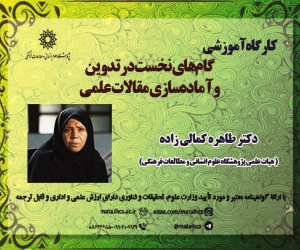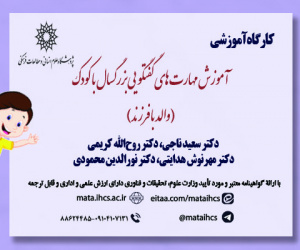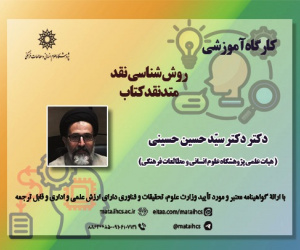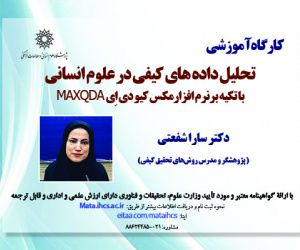تحلیل گام های حکمرانی اسلامی در اندیشه شهید محمدباقر صدر (ره) (مقاله پژوهشی حوزه)
درجه علمی: علمی-پژوهشی (حوزوی)
آرشیو
چکیده
شهید محمدباقر صدر، حکمرانی اسلامی را بر پایه اصولی همچون عدالت اجتماعی، تطابق با شریعت، انعطاف پذیری در رویارویی با مقتضیات زمانی و نظارت پیوسته، استوار می داند. از نگاه او، عدالت اجتماعی به عنوان ستون مشروعیت نظام حکومتی، نقش محوری در اعتمادسازی و پایداری حکومت دارد. ایشان بر هماهنگی کامل قوانین اجرایی با اصول شریعت تأکید کرده و مفهوم «منطقه الفراغ» را به عنوان ابزار انعطاف پذیری نظام حکمرانی برای پاسخ گویی به نیازهای متغیر جامعه معرفی می کند. در این راستا، نظارت دقیق و مداوم بر دستگاه های اجرایی، از دیدگاه وی، تضمین کننده شفافیت، رویارویی با فساد و افزایش کارآمدی نظام است. روش پژوهش به کار گرفته شده در این مقاله، توصیفی _ تحلیلی است و با بهره گیری از مطالعات تطبیقی و تحلیل متون کلاسیک و معاصر، چهارچوب نظری جامعی از حکمرانی در اندیشه شهید صدر; ارائه شده است. دستاوردهای پژوهش نشان می دهد که اندیشه حکمرانی شهید صدر، الگویی جامع و منعطف برای مدیریت جوامع اسلامی ارائه می دهد که با وجود حفظ اصول ثابت شریعت، امکان انطباق با تغییرات اجتماعی و فرهنگی را داراست. این مقاله، با ارائه مدل تحلیلی حکمرانی صدر، نقطه آغازی برای پژوهش های ژرف تر و گسترش مطالعات میان رشته ای در باب حکمرانی اسلامی شمرده می شود و زمینه ای را برای کاربردی سازی این اندیشه در بافت جوامع معاصر فراهم می آورد.Analysis of the Steps of Islamic Governance in the Shahīd Muḥammad Bāqir al-Ṣadr’ Thought
Shahīd Muḥammad Bāqir al-Ṣadr considers Islamic governance to be based on principles such as social justice, compliance with Sharia, flexibility in facing the requirements of time, and continuous supervision. From his perspective, social justice, as a pillar of the legitimacy of the government system, plays a pivotal role in building trust and stability in the government. He emphasizes the complete coordination of executive laws with the principles of Sharia. He introduces the concept of Mantiqat al-Firāq” as a tool for the flexibility of the governance system for accountability to the changing needs of society. In this regard, careful and continuous supervision of the executive apparatus, from his perspective, guarantees transparency, confronts corruption, and increases the efficiency of the system. The research method used in this paper is descriptive-analytical, and by utilizing comparative studies and analyzing classical and contemporary texts, a comprehensive theoretical framework of governance in the thought of Martyr Sadr has been presented. The research findings show that the governance thought of Shahīd al-Ṣadr offers a comprehensive and flexible model for managing Islamic societies that, while maintaining the fixed principles of Sharia, can adapt to social and cultural changes. By presenting the analytical model of Sadr’s governance, this paper is considered a starting point for deeper research and the expansion of interdisciplinary studies on Islamic governance. It provides a basis for the application of this thought in the context of contemporary societies.


